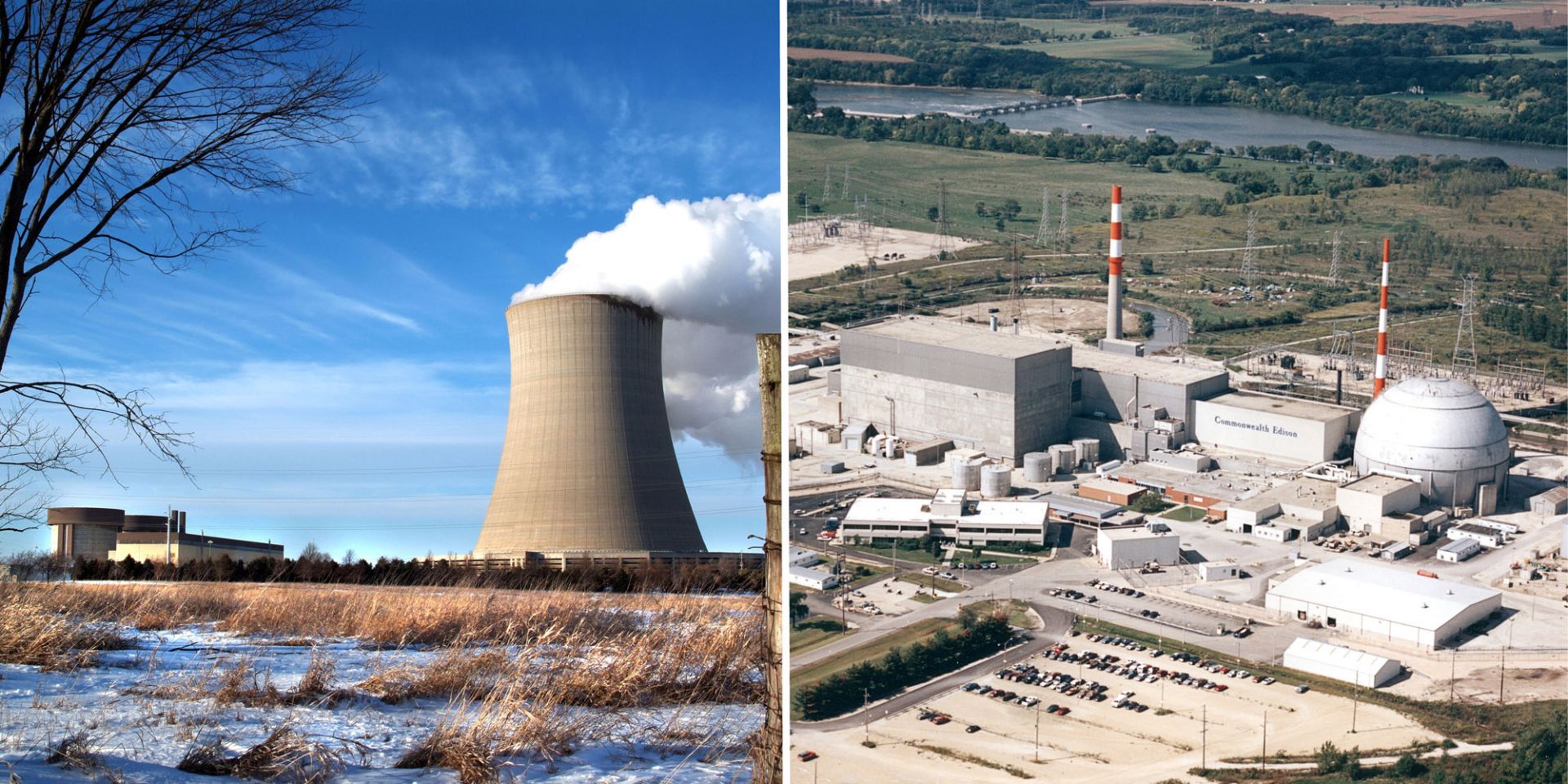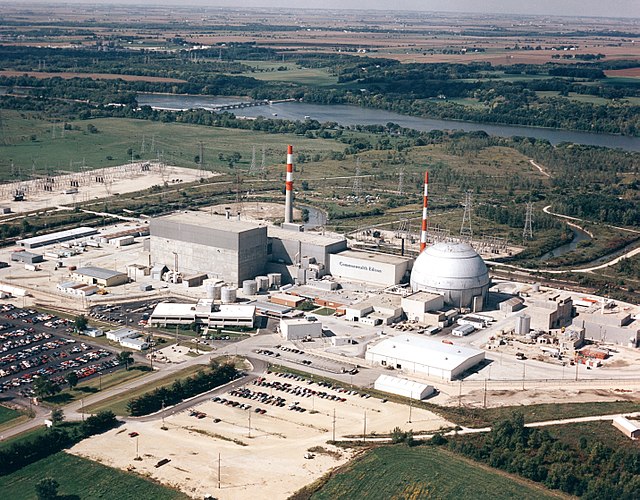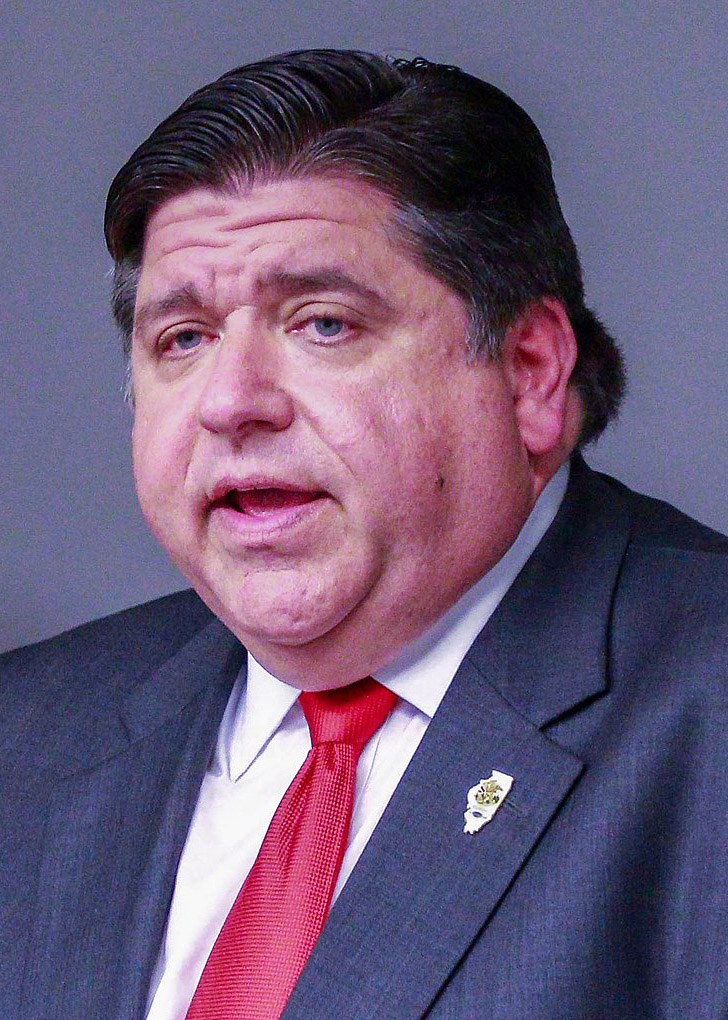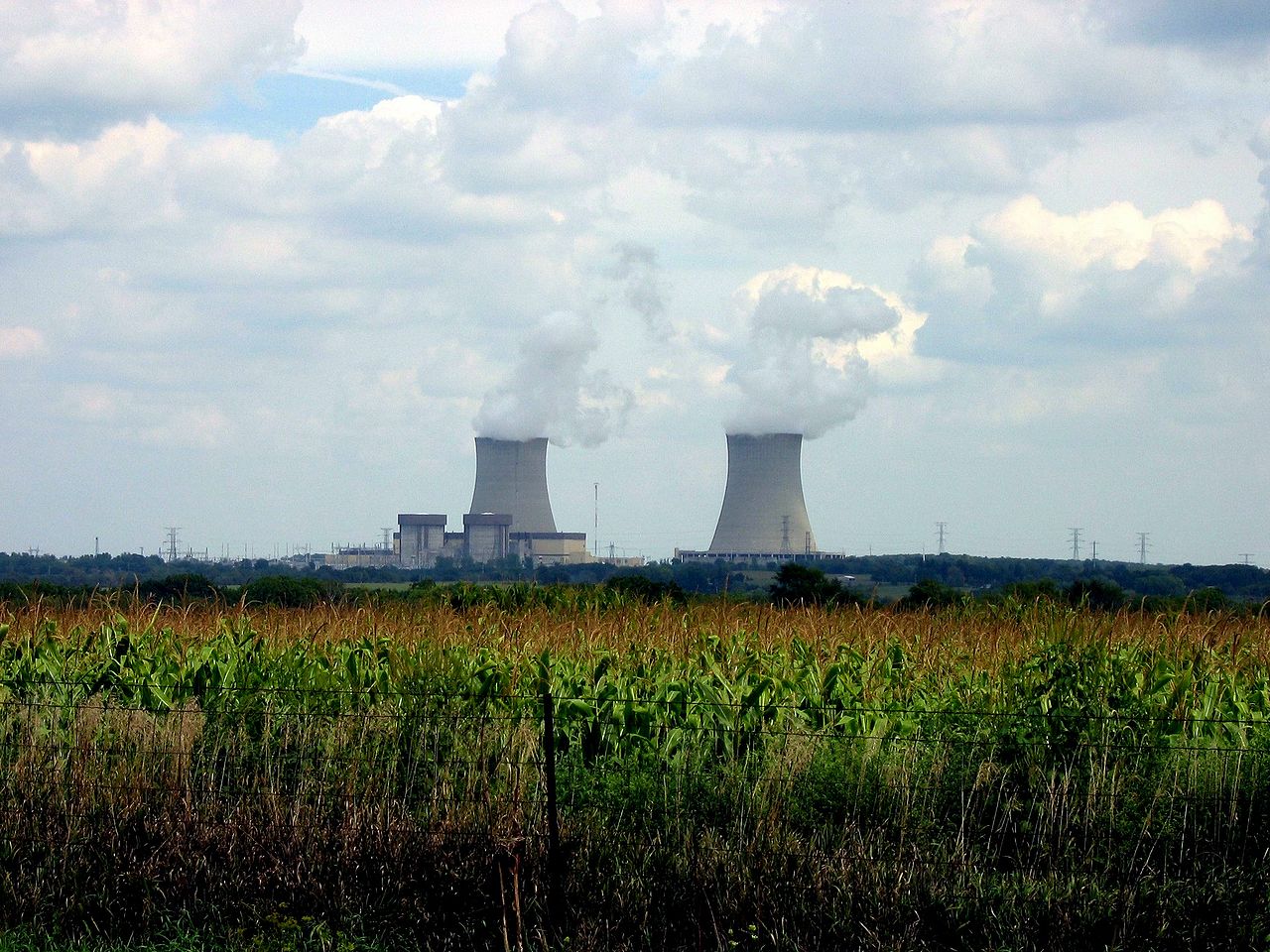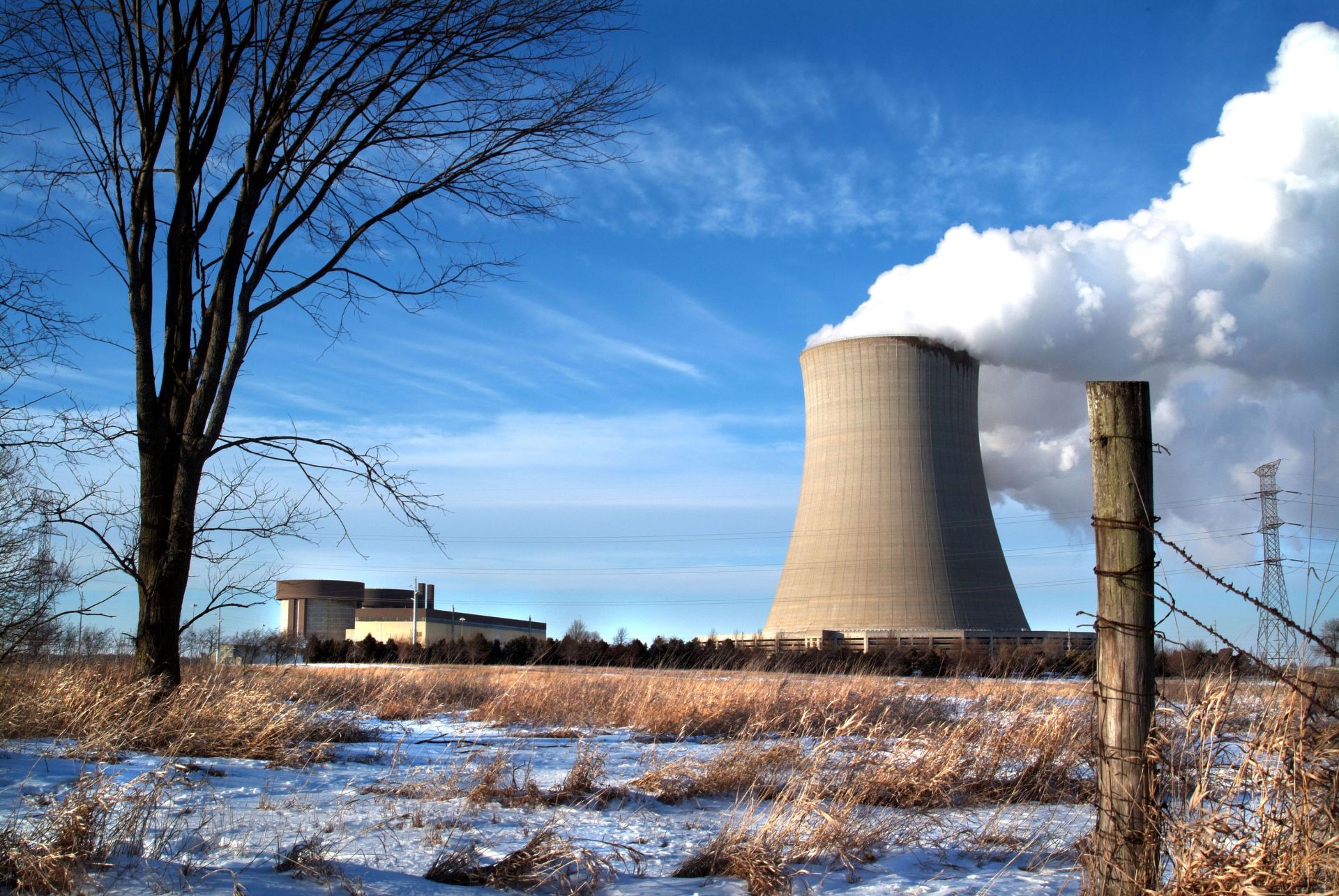The Byron and Dresden nuclear power plants.
In what could be viewed as a rather pointed message to Illinois lawmakers that time is running out to pass legislation providing a lifeline to the state’s Byron and Dresden nuclear plants, Exelon Generation this morning announced that it would file post-shutdown decommissioning activities reports (PSDARs) today with the Nuclear Regulatory Commission. The PSDARs detail long-term site restoration plans for the facilities, both of which are scheduled to shut down for good this fall—first Byron, in September, then Dresden, in November.
The Dresden nuclear power plant (Photo: Nuclear Regulatory Commission)
As Illinois lawmakers continue to debate energy legislation that would allow the state’s Byron and Dresden nuclear plants to continue operation beyond this year, Exelon would like to remind everyone—including those legislators, no doubt—of what is at stake.
June 18, 2021, 12:06PMUpdated June 18, 2021, 4:50PMNuclear News The Byron nuclear power plant.
Exelon on June 16 filed with grid operator PJM Interconnection to deactivate the two Byron reactors in Illinois. The move came one day after the Illinois Senate adjourned without reaching an agreement on a comprehensive energy package that would have provided nearly $700 million to keep Byron’s reactors, as well as Exelon’s Dresden and Braidwood nuclear power plants, in operation. (In August of 2020, Exelon announced that it would close the economically challenged Byron and Dresden facilities in the fall of 2021 without some form of state aid to provide compensation for their clean power.) The state’s House of Representatives also adjourned earlier this week without taking up the bill.
Byron nuclear power plant
Three Illinois nuclear power plants—Byron, Dresden, and Quad Cities—did not clear in last week’s long-delayed PJM Interconnection capacity auction, Exelon Generation reported in a filing with the Securities and Exchange Commission.
The news is likely to further pressure the Illinois General Assembly to pass a comprehensive energy package—one with subsidies for the state’s financially ailing nuclear plants—before Exelon moves forward with its plan, announced last August, to prematurely retire Byron and Dresden.
Two of the state’s six nuclear plants nearly closed in 2016, but legislative action saved them. Now two more are at risk.
If there is one U.S. state you might think would be on top of the nuclear-plant-retirement problem, it’s Illinois: With 11 power reactors, more than any other state, it is number one in nuclear generating capacity. In 2019, 54 percent of its in-state generation came from nuclear power. So why, at this writing in mid-April, does Illinois still face the possibility of losing two of its nuclear plants later this year?
Exelon's Byron Nuclear Generating Station.
A group of Illinois lawmakers joined Joe Duffy, executive director of the labor coalition Climate Jobs Illinois (CJI), at a virtual news conference on March 29 to unveil a union-focused, clean energy legislative proposal that includes help for the state’s struggling nuclear power plants.
Byron (left) and Dresden (right) may be looking at early retirement if Springfield doesn't pass an energy package before the fall of 2021.
On August 27, I stood in front of small groups of socially distanced employees at our Dresden Generating Station in Illinois, announcing plans for the premature retirement of the nuclear facility next fall. A hundred miles away, our chief operating officer was delivering a similar, equally somber announcement to employees at the Byron Station.
Despite being among the safest, most efficient, and reliable nuclear plants in the nation, Dresden and Byron face revenue shortfalls in the hundreds of millions of dollars because of declining energy prices and market rules that allow fossil fuel plants to underbid clean merchant nuclear resources in the PJM capacity auction, even though there is broad public support for sustaining and expanding clean energy resources to address the climate crisis.
